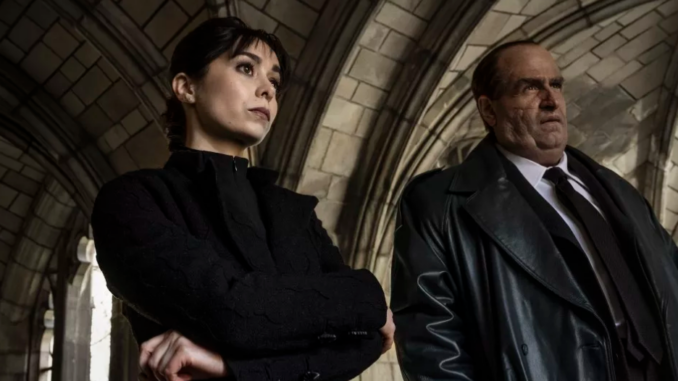
Colin Farrell Turns Gotham Into ‘The Sopranos’ With HBO’s
Thrilling ‘The Penguin’ The notion of a Batman show without Batman isn’t new—we’ve spent decades in a series of failed attempts to build a Gotham City largely untethered from the Caped Crusader’s nocturnal adventures. ‘Birds of Prey,’ ‘Gotham Knights,’ hell, ‘Pennyworth: Origins of Batman’s Butler’ all left a withering impression on the expanding public’s mind. And, indeed, if there’s a close parallel to any of those shows in HBO’s latest series, ‘The Penguin,’ it’s FOX’s increasingly complex ‘Gotham,’ which spends more of its 100 episodes on the criminal machinations of the city’s underworld than anything else. But Lauren LeFranc’s version of Gentleman of Crime outshines, or rather waddles, its competitors in eight short episodes, creating a gangster epic from its comic book roots that, if not surpasses, at least matches the mood of its inspiration.
A spinoff from Matt Reeves’ dark, “Se7en”-inspired “The Batman,” “The Penguin” picks up right after the 2022 film after Paul Dano’s Riddler destroys the sea wall protecting Gotham City and floods poor neighborhoods. Smelling opportunity, cowardly middle-class gangster Oswald “Oz” Cobb (Colin Farrell, still unrecognizable under his dirty fake skin, fat suit, yellow teeth and wobbly gait) sees a way to get to the top amid all the chaos: pitting the crippled Falcone (the Carmine [Mark Strong in flashback, replacing John Turturro] killed in “The Batman”) and Maroni (the Blackgate Prison-bound Salvatore [Clancy Brown]) against each other.
But Oz’s greatest strengths—his gift of the gab, his resourcefulness, his ability to morph into everyone—come with his weaknesses, including a Joe-Pesci-in-“GoodFellas” chip on his shoulder that drives him to rage. In the opening minutes, that impulsiveness and integrity get him into trouble, an insult from Falcone heir Alberto (Michael Zegen) prompting Oz to fire some bullets at perhaps the most bulletproof man in Gotham. Farrell sneezes in vindication under those prosthetics, and then a veil covers his face. “Oh, fuu-.” Title.
The push and pull between Oz’s (or The Penguin’s, if you really want to piss him off) ambition and insecurity drives all eight episodes of the series, somehow making this low-level crime epic feel complete and satisfying despite the absence of the Caped Crusader. Batman is only briefly mentioned in a news report, and then never mentioned again; you’d think he’d turn his attention to the escalating turf war in Gotham’s version of Queens (Crown Point), but perhaps he has bigger fish to fry. Fine, I say: It allows Farrell and company. take a breather, letting LeFranc slowly build a crime drama that escalates quickly to a climax.
Instead, Cobb’s shot at the bell tower comes in the form of Alberto’s debauched sister, Sofia Falcone (Cristin Milioti), who has just returned from a stint in Arkham after being placed there as the alleged serial killer known as “The Hangman.” Whether the stories are true or not is beside the point: Arkham has either changed Sofia or brought out what was already in her, and her plans as a newly revealed psychopath will likely complicate Oz’s rise to power. Milioti plays Sofia with a dangerous but cheerful gaze that stops short of any Harley Quinn-style drama (save for the occasional plunging neckline or flashy outfit). Instead, she’s a shark, deeply focused as Oz flaps his fins from one impulse to the next. At times, she threatens to steal the show right under Farrell; she’s that good.
But Farrell still holds her own, especially as he develops his version of Cobb into something beyond the character’s Robert De Niro-James Gandolfini roots. Yes, there’s a touch of Scorsese or “The Sopranos” in the way Cobb throws his literal weight around, and the Noo Joyzy accent gives him enough comedic edge to counter the threat. Like Tony Soprano, he also has a complicated relationship with his mother (Dierdre O’Connell), who sees all of his deadly potential, good and bad, and pushes him to realize it. (“Are you a wimp?” she coos at him, in one of her signature pep talks.) The mother-son factor extends to Cobb’s entire ethos, which shapes his trajectory in fascinating ways. Farrell plays him as a dangerous man,